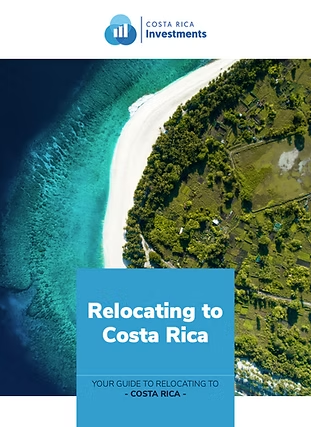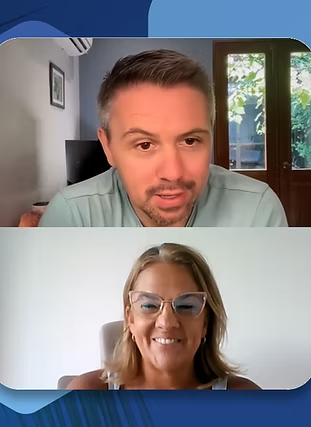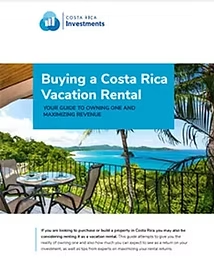Simplify Your Move to Costa Rica: Expert Guidance for a Seamless Transition
Comprehensive resources on immigration, housing, and living to make your relocation effortless.

100% Satisfaction Guarantee
Relocating to Costa Rica can feel overwhelming, but with the right guidance, it doesn’t have to be. Whether you're retiring, working remotely, or moving with family, we provide expert advice on visas, housing, healthcare, and daily life. From arranging transportation and setting up utilities to finding the perfect neighborhood, we simplify every step of the…
Relocation Assistance
Who is our Relocation Assistance for?
We provide all the assistance you need in order to move to Costa Rica
Your Relocation Resources
Take a Deep Dive

Ana Brenes
Relocation & Investment Expert
Ana has worked in the hospitality and relocation field for the past 18 years. Her experience has taught her that relationships are everything in every aspect of life and business. Nothing makes her happier than deeply understanding what a person/family needs and finding it for them, even surprising them with a better version. Being able to assure them that they have a smoother move and peace of mind with undue stress or complications.

Moving to Costa Rica Made Simple
How It Works
Moving to Costa Rica can be complicated. Whether you're a retiree, digital nomad, or family, we simplify everything—from visas to finding a home. Unlike generic blog posts, we provide up-to-date, expert-vetted advice tailored to YOUR situation. Let the local experts share with you real estate insights to help you find the right home, at the right price.
Get Personalized Advice
Want tailored advice? Book a one-on-one consultation to discuss your specific needs and get expert recommendations. We will understand who you are, what’s important to you and why you are moving. With this information, we can help you define the locations in Costa Rica that fit these goals, and the steps required to make the move and guide you.
Visit Different Areas and Meet Expat Community
We will organize your trip to explore areas, view properties (rentals/homes), understand the lay of the land and what living will be like in Costa Rica. Connect with other expats and locals for tips, recommendations, and support in your new home.
Move with Confidence
Use our resources to secure your visa, find housing, and transition smoothly to life in Costa Rica. We’ll assist you from the moment you arrive, handling transportation, setting up utilities, enrolling your kids in school, and taking care of all the essentials for a smooth transition.
Why Choose Us to Help You Relocate?
Moving to Costa Rica is exciting—but it can also feel overwhelming. Our expert resources and guidance make the transition smooth, so you can focus on enjoying your new life.
Personalized Relocation Plan
We create a step-by-step action plan based on your needs.
Save Time & Reduce Stress
No need to search for scattered information—everything you need is in one place.
On-the-Ground Support
We connect you with trusted real estate agents, attorneys, and local experts.
Smart Financial & Tax Planning
Avoid costly errors or any surprises with guidance on taxes, cost of living, and financial requirements.
By far, the best resource available for anyone interested in investing in property in Costa Rica. We toured both urban and resort locations throughout the country and found them proactive, knowledgeable and an excellent and unbiased resource for selecting and purchasing property that best fits with the needs of the buyer.
We are here to help you.
Need Help?
Contact us and we will happily help you with any questions you have about Costa Rica. With over 50 years of combined experience, who better to ask than the experts?



